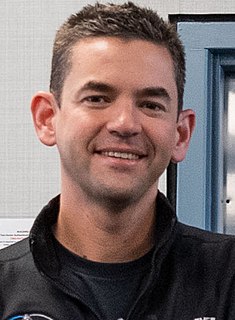A Quote by Rick Tumlinson
The Moon! Mars! Asteroids! Rockets! Helium 3! Space solar power! Space tourism! We go through fads, swarm around the hero de jour, and spend far too much time trashing the other guy's ideas in favor of our own.
Related Quotes
I've said multiple times that the world's first trillionaire is going to be the person who exploits the resources of asteroids, the natural resources that are rare on earth and common on selected asteroids. So there are many different reasons you might want to go into space. You might want to spend your honeymoon on the far side of the moon.
In my mind, public space travel will precede efforts toward exploration -- be it returning to the moon, going to Mars, visiting asteroids, or whatever seems appropriate. We've got millions and millions of people who want to go into space, who are willing to pay. When you figure in the payload potential of customers, everything changes.
If you were to stand on an asteroid in the main belt of asteroids between Mars and Jupiter in our solar system, you might be able to see one or two asteroids in the sky, but they would be very far away and very, very small. So you wouldn't have this 'dodging through tons of rocks' business you get in the movies.
The future is about wings and wheels and new forms of space transportation, along with our deep-space ambition to set foot on another world in our solar system: Mars. I firmly believe we will establish permanence on that planet. And in reaching for that goal, we can cultivate commercial development of the moon, the asteroid belt, the Red Planet itself and beyond.




























